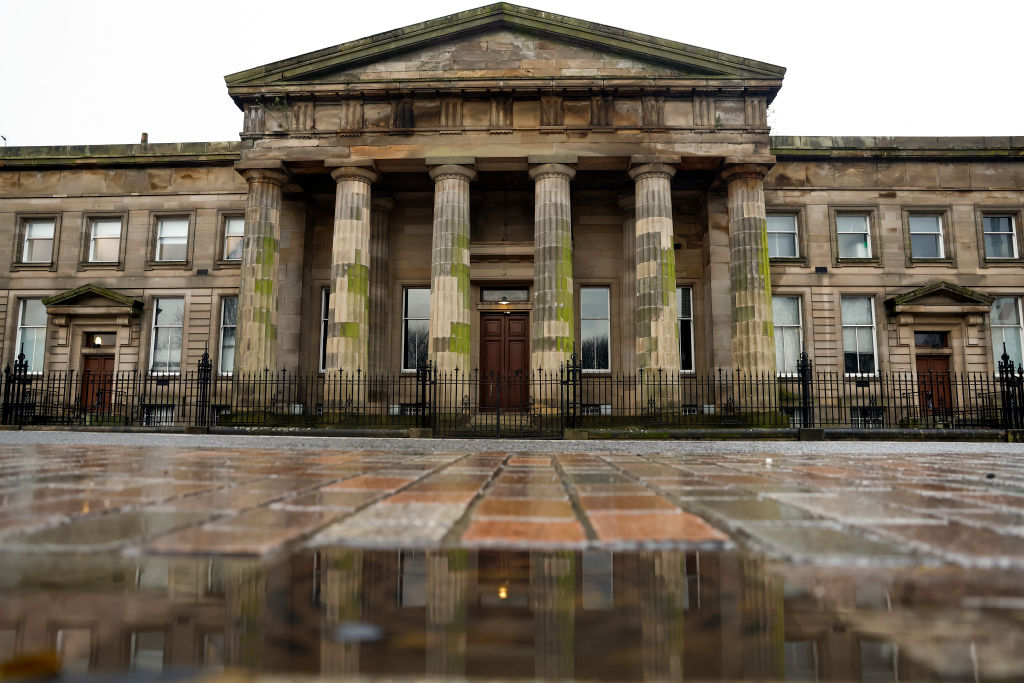When I walked into court on 1 July 2022 to see my rapist Daniel McFarlane receive a sentence for his crimes against me, I expected to feel triumphant. This was my chance for closure. He’d been found guilty and now he would face the consequences. What I hadn’t anticipated, however, was that his defence lawyer Lorenzo Alonzi would use the hearing to launch into a tirade of insults against me – while I had to sit and listen in silence.
Alonzi spoke of how my first-class honours degree and masters with distinction were an ‘injustice’ compared to the fate of my abuser. How we were like ‘chalk and cheese’ in terms of sexual morality, and how really what happened wasn’t a serious crime, but rather a case of McFarlane having ‘fallen in love with the wrong person’. It was played off as a tragic love story, rather than a pattern of sick abuse at the hands of a convicted rapist.
I left court feeling humiliated and traumatised. My rapist had been given a five-year sentence and yet I felt no real sense of justice. I sunk into a depression, wondering if all the vile things Alonzi had said about me were true – was I responsible for the abuse I suffered? My health suffered from the stress and I had to take time away from work.
How could it be that in a modern democracy, justice and accountability were only for those who could afford it?
I knew what had happened to me during the trial wasn’t right. I began reading up on the laws of evidence and the codes of conduct lawyers must abide by in the courtroom. In Scotland, where my case was heard, there are so-called ‘rape shield laws’ in place that prevent vulnerable victims being subject to invasive questioning on their sexual history or their character. Similar laws are also in place in England and Wales. Additionally, lawyers acting in such cases must act in a ‘courteous’ and ‘respectful’ manner.
While my experience at sentencing was probably the worst part of my court ordeal, my cross-examination by Alonzi was also difficult. He’d repeatedly tried to imply I was promiscuous and asked me about other men in my life. The heated questioning culminated in me being accused of having narcissistic personality disorder, despite no medical evidence of such a condition being present. The judge had repeatedly warned Alonzi that his behaviour was in violation of these laws, yet he persisted regardless.
I wrote all of this down in a complaint to the regulatory body, the Scottish Legal Complaints Commission, in the hope that action would be taken swiftly. They wrote back to me informing me I’d need my court transcript to corroborate my claims and it was then that I hit my first major hurdle. I had no idea that the transcript of my own case wasn’t freely accessible. The court informed me that the records would cost £100 per hour of court proceedings (not including VAT) and that accessing the whole case would cost me thousands.
I despaired: how could it be that in a modern democracy, justice and accountability were only for those who could afford it? My next step was the media. I launched a public campaign for free court transcripts in Scotland and subsequently set up a crowdfund to access my own. I was then able to raise the money, get the proof I needed and submit my complaint. The publicity from the crowdfund helped exert additional pressure on the Scottish government, and in May 2023 the then-first minister referenced my campaign in his announcement of a pilot programme for free court transcripts for rape survivors.
My complaint was upheld last month, with Alonzi having been found to have ‘abused his position’ and last week it was revealed that he would have to pay me compensation. As victorious as it feels having taken on the legal establishment by myself – and having won – I still feel a residual anger about how much time, money and effort it took to reach this outcome.
My experience in court is not unique, and countless rape survivors across the country report similarly dehumanising experiences at the hands of the defence. Many defence lawyers are well aware of the rules of evidence yet push the boundaries anyway, hoping to bias the jury. While a judge can ask a jury to disregard things, once something is said it can’t be unheard.
The court system in the UK is archaic and secretive, while outsiders are treated with contempt. It is this institutionalised secrecy which allows for a culture of impunity for lawyers who cross the line. While we now have free court transcripts in Scotland, survivors in England and Wales still face fees of thousands to access theirs. The Open Justice campaign seeks to change this – yet the UK government refuses to engage with it.
We often bemoan low reporting rates for rape and sexual offences and tend to chastise the victims themselves for not coming forward. Yet can they be blamed for not wanting to partake in a system that cares little for their needs and dignity? If we want rapists behind bars then, while radical action to reform the justice system is certainly needed, it starts by actually listening to the people who have been attacked.






Comments